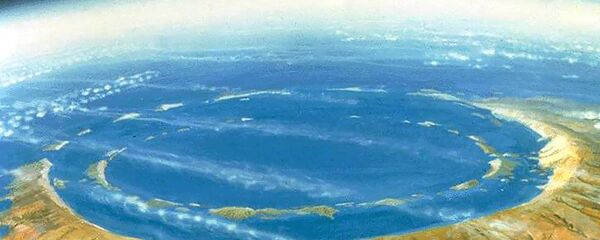A 338 metre (1,110-foot )-wide asteroid known as 99942 Apophis will fly past Earth at a distance of around 19,000 miles (30,577 kilometres) on 13 April 2029, Newsweek reports.
The magazine quoted astronomers as saying that Apophis, which is named after the ancient Egyptian god of chaos, may potentially approach closer to the Earth's surface than some orbiting spacecraft. At the same time, they almost ruled out the possibility of the asteroid striking Earth.
READ MORE: UK Scientists Prepare for Worst as Huge Asteroid Surges Towards Earth
Marina Brozovic, a radar scientist at NASA's Jet Propulsion Laboratory (JPL) in Pasadena, California described the forthcoming asteroid approach as “an incredible opportunity for science”.
“We'll observe the asteroid with both optical and radar telescopes. With radar observations, we might be able to see surface details that are only a few meters in size”, she told a session of the 2019 Planetary Defence Conference in College Park, Maryland.
Davide Farnocchia, an astronomer at the JPL's Centre for Near Earth Objects Studies (CNEOS), for his part, cited 15 years of optical and radar tracking data on Apophis, which he said helps researchers have “a very precise estimate of its orbit through the 2029 encounter with the Earth”.
READ MORE: Scientists Found Comet As Old As Solar System Inside of Asteroid in Antarctica
“We already know that the close encounter with Earth will change Apophis' orbit, but our models also show that the close approach could change the way this asteroid spins, and it is possible that there will be some surface changes, like small avalanches”, Farnocchia said.
Farnocchia added that since Apophis is bigger than an aircraft carrier, it could cause consequences on a continental level if it collided with Earth.
READ MORE: Japan’s Spacecraft Shoots Asteroid with Bullet to Collect Samples (VIDEO)
CNEOS director Paul Chodas, in turn, dubbed Apophis “a representative of about 2,000 currently known Potentially Hazardous Asteroids”.
“By observing Apophis during its 2029 flyby, we will gain important scientific knowledge that could one day be used for planetary defence”, Chodas noted.


